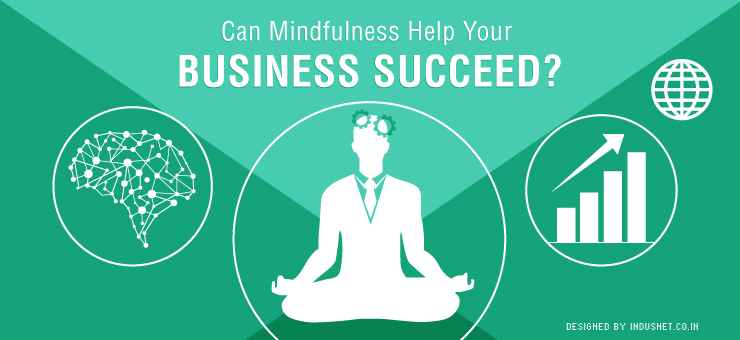
A number of times, we come across situations which seem chaotic. Thoughts run wild and emotions wreak havoc. Meanwhile, our behavior goes haywire and people begin to question if we really are worthy enough to do the tasks we claim to be able to do so. Eventually, we begin to question our own abilities and we become despondent and cynical. This may lead to stress, anxiety or depression. Certainly, these are serious mental illnesses which can affect anyone.
Just like we can experience the flu, cold or a bad stomach, we can also experience psychological illnesses. There is always a stigma attached to mental health, especially among business executives and CEOs, who are always expected to be in control of their thoughts, behaviors, and emotions.
Yet, we are all human and to be human is to accept that we can fall down. In order to overcome chaotic situations which seem to overwhelm us emotionally, we need to start observing what is really happening within our own minds. Buddhist monks called this mindfulness. Psychologists took this one step further and introduced mindfulness meditation. Even if you cannot practice meditation, you can certainly practice mindfulness.
In this article, let us learn how to practice mindfulness.
1. In any given situation, begin to name the feelings of your experience. For example, ‘angry’, ‘sad’, ‘hurt, ‘confused’, ‘joyous’, ‘calm’, etc. If you are feeling a distressing emotion, name it and tell yourself that this is an emotion, which will not last forever.
2. Observe your thoughts. If you are experiencing a negative emotion, you will probably have negative thoughts. If you have positive emotion at that particular time, you will probably have positive thoughts. For example, if you are anxious, an automatic thought could be “Oh my god, I will not be able to reach my sales target”. If you are feeling happy, your automatic thought maybe something like this: “Oh, it cannot be that bad. I will do it tomorrow”.
3. While you observe your thoughts, observe your emotions too. Do not judge yourself. Instead, be a non-participant within your own thought process.
4. Breathe in deeply and breath out slowly. Observe the world around you and also your own thoughts and emotions, without judging, criticizing or analyzing.
5. Tell yourself that emotions are momentary and so are thoughts. You will notice that the strength of these negative emotions will slowly dissipate and you will begin to feel calmer.
How mindfulness helps you to be successful in your business
As you can see, most of our times we think the way we feel. We also feel the way we think. When we begin to observe our thoughts and emotions from a distance, we realize that everything is temporary. You will begin to stop taking drastic actions and instead, you will be neutral and do what is required. In other words, you will be able to make your business decisions with a cool head. This alone can save you hundreds of thousands of dollars.
Mindfulness helps you to stay calm, focused and non-judgmental. These are the three important qualities to run a business. If you overcome your emotional thinking and impulsive behavior, you will notice that you are running your business more effectively. It is very important to be aware of our emotional and thinking processes. Mindfulness is a great technique to do so. If you would like to learn how to practice mindfulness, you can always approach a registered clinical psychologist who will be able to teach you the technique in a sitting or two. These are valuable life skills that everyone must know, especially business owners!